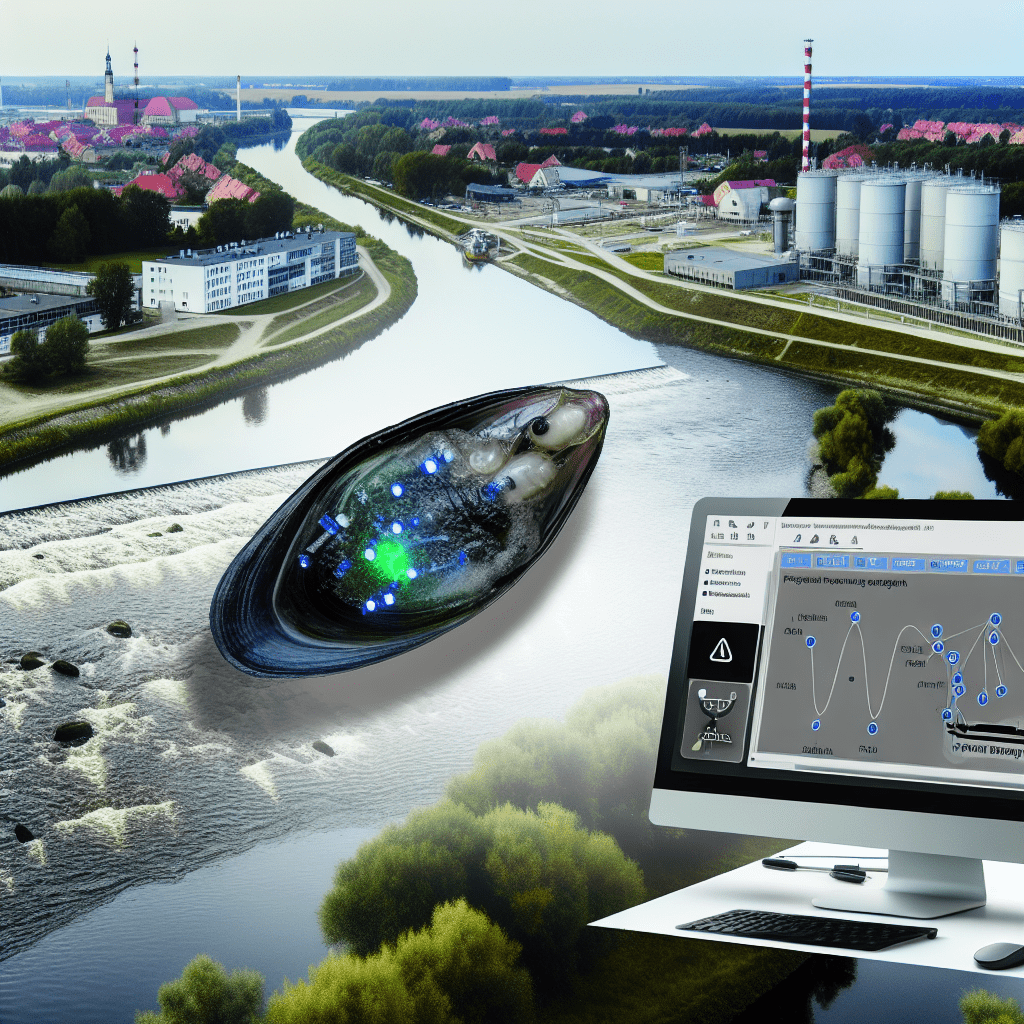The city of Poznań, Poland is taking a unique approach to monitor water quality in their primary surface water supply. Instead of relying solely on artificial sensors, the Dębiec Water Treatment Plant has turned to mussels as natural indicators of pollution. By using the natural intelligence of mussels, which have a low tolerance for pollutants and will close their shells when water quality is poor, the treatment plant has created a hybrid sensory system that combines the power of nature with computer technology.
The system works by attaching sensors to eight mussels and monitoring their behavior. If the mussels close their shells, it signals to the sensors that the water quality is low. This is especially helpful for the Warta River, which flows through densely populated areas and industrial zones in Poland. The plant’s engineers are alerted to any changes in water quality, and the system is designed to account for any changes in the mussels’ behavior. If four mussels close simultaneously, the system automatically shuts down.
This innovative approach to water quality monitoring is part of the AquaNES project, supported by the European Union, which aims to incorporate nature-based elements into water management systems. According to AquaNES, using organisms as indicators requires extensive research to accurately understand their behavior and natural occurrence conditions. Mussels have been found to be highly effective indicators because of their specific life requirements and narrow ecological scale.
The mussels’ important role in monitoring water quality has been recognized in the documentary film “Gruba Kaśka” directed by Julia Pełka. The film explores the use of biological indicators in human systems and highlights the dependence of humans on nature. Pełka believes that using mussels as a warning system against danger is a brilliant way of protecting ourselves from the dangers of modern civilization.
This unique approach to water quality monitoring shows the trust and reliance that can be placed on nature’s mechanisms. The Dębiec Water Treatment Plant’s use of mussels as sensors is not only an innovative solution but also a reminder of our interconnectedness with the natural world.

